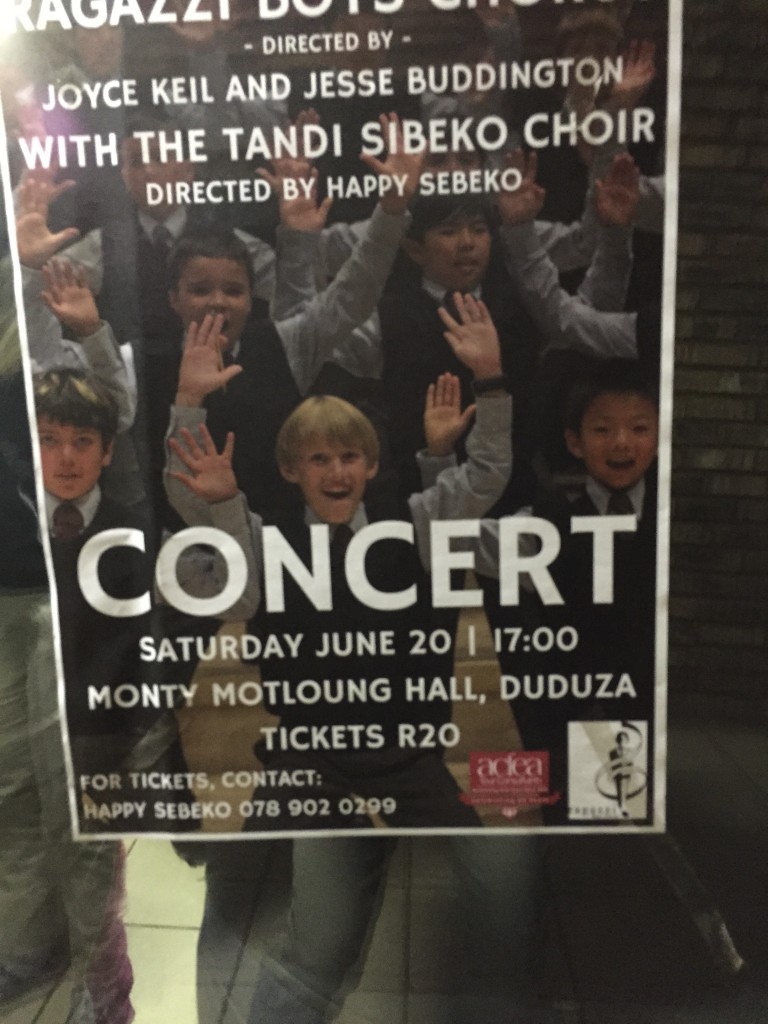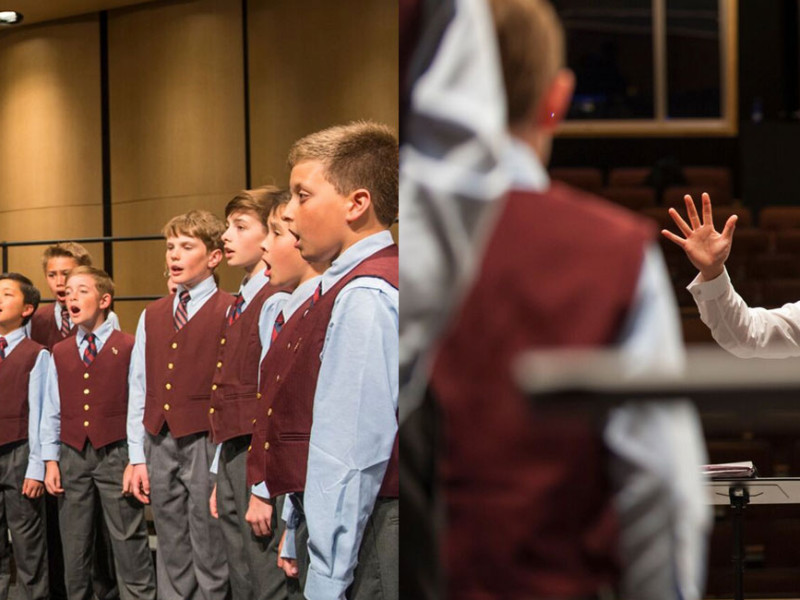Parent: Ragazzi provides tools for life

This essay was written by the parent of a Ragazzi chorister who is in the graduating class of 2018. We thank this young man and his family for sharing the highlights of his years with the chorus. We share his parents’ pride in his determination to learn to read music, in spite of his dyslexia. His name has been changed here to protect his privacy.
I am the mom of a senior in Ragazzi’s Young Men’s Ensemble. My son Brody joined Ragazzi at age 7. I saw an advertisement to audition for Ragazzi and I wanted my son to have a musical experience. Ten years later, here we are. And I say “we” because Ragazzi has been important to the entire family.
It is Brody’s senior year in high school, and he has been working on his college essay. He gave it to me to edit, and I was completely blown away. It is unbelievable all of the things that he has done because of his membership in Ragazzi.
He sang with a choir in a township outside of Soweto, South Africa. He describes the dirty corrugated roofs, the smiles on the faces of the local choir as they ran up to the Ragazzi bus in excitement because no Americans had every come to sing in their township. The concert was different, too. The audience became a part of the performance, moving, laughing, and singing along with them. He sang in St. Petersburg, where members of the audience rushed the stage at the end to join hands and pronounce that music was the way to join nations together.
In his essay, he talks about the homestay opportunities that we had because of Ragazzi. There was a young man from Cuba who stayed in our house. We had a massage chair and the word got out to the rest of the Cuban choir. They were fascinated, and they all came over to our house to try out the massage chair. They had never seen (or felt) anything like it. They stayed and sang Cuban songs late into the night and talked to Brody, who was about 13 years old, about what it was like to live in Cuba.
He says that one of the most important experiences he had was recording a CD at Skywalker Ranch. The boys worked to the point of pure exhaustion, and then worked some more. In the end, it was very gratifying. And how many 14-year-olds can say that they’ve performed at Carnegie Hall? It’s quite a list, but he barely scratched the surface of his experiences as a Ragazzi chorister.
It turns out, though, that Brody’s college essay is not just about Ragazzi. It is about being dyslexic and not being able to read music. Imagine how distressing it would be to look at a sheet of music and not be able to distinguish whether the notes were on a line or a space, or if the music was going up or down. His first reaction was to try to hide this fact from everyone. It would be his secret. He had many strategies, a good ear, and a great ability to memorize his part. He eventually realized, though, that he would not succeed unless he learned to read music. Thus began a meticulous and painstaking effort, with the help of Ragazzi staff, other choristers, and fierce self-determination.
As a parent, I can tell you that Brody’s experiences in Ragazzi have taught him commitment, hard work, collaboration, organization, and confidence. Ragazzi has given him the opportunity to earn healthy self esteem. Going to overnight camp at age 8 started the foundation of resilience, independence, and self-reliance. He has found a lifetime friendships through Ragazzi.
Ultimately, the joy he takes in music is a gift that he will have the rest of his life. The tools that Ragazzi has helped him develop – has given him – will help him in whatever he chooses to do.
